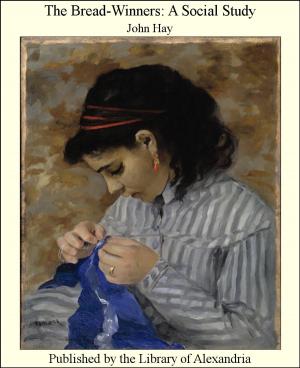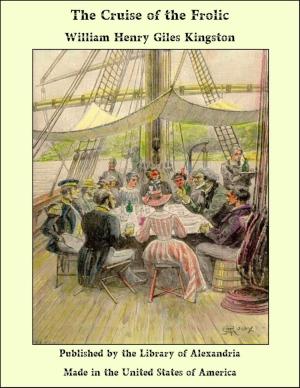In the Days of Queen Victoria
Nonfiction, Religion & Spirituality, New Age, History, Fiction & Literature| Author: | Eva March Tappan | ISBN: | 9781465604446 |
| Publisher: | Library of Alexandria | Publication: | March 8, 2015 |
| Imprint: | Language: | English |
| Author: | Eva March Tappan |
| ISBN: | 9781465604446 |
| Publisher: | Library of Alexandria |
| Publication: | March 8, 2015 |
| Imprint: | |
| Language: | English |
It made little difference to either the Duke or the baby how the Prince Regent might feel about her name, for the Duke was the happiest of fathers, and the little Drina, as the Princess was called, was a merry, sweet-tempered baby. Everyone at Kensington loved her, and over the sea was a grandmother, the Dowager Duchess of Coburg, who could hardly wait for the day to come when she would be able to see the child. "How pretty the little Mayflower will be," she wrote, "when I see it in a year's time." Another letter said: "The English like queens, and the niece of the beloved Princess Charlotte will be most dear to them." Princess Charlotte was the only child of Prince George, and the nation had loved her and longed to have her for their queen. She had married Leopold, the brother of the Duchess of Kent, and had died only two years before "Princess Drina" was born. The succession to the English crown was in a peculiar condition. The king, George III., had become insane, and his eldest son, George, was ruling as Prince Regent. If the Regent lived longer than his father, he would become George IV. His next younger brother was Frederick, Duke of York; then came William, Duke of Clarence; and then the Duke of Kent. George and Frederick had no children, and William's baby girl died on the very day that the Princess Alexandrina was born. If these three brothers died without children, the Duke of Kent would become king; but even then, if the Duke should have a son, the law was that he, rather than the daughter, should inherit the crown. The baby Princess, then, stood fifth in the succession to the throne, and a child born to any one of these three uncles, or a son born to her father, would remove her still further from sovereignty. The English people had talked of all these possibilities. The Duke of Kent had also several younger brothers, but they were all middle-aged men, the youngest forty-five, and not one of them had a child. If all the children of George III. died without heirs, the English crown would descend to a line of Germans who had never walked on English soil. "We have had one king who could not speak English," said the people, "and we do not want another." The Duke of Kent was a general favorite among them, and they hoped that he, and after him his daughter, would become their ruler. Indeed, they hoped for this so strongly that they began to feel sure that it would come to pass. Everyone wanted to see the little Princess. Many a person lingered under the palace windows for hours, and went away feeling well repaid for the delay if he had caught a glimpse of the royal baby in her nurse's arms.
It made little difference to either the Duke or the baby how the Prince Regent might feel about her name, for the Duke was the happiest of fathers, and the little Drina, as the Princess was called, was a merry, sweet-tempered baby. Everyone at Kensington loved her, and over the sea was a grandmother, the Dowager Duchess of Coburg, who could hardly wait for the day to come when she would be able to see the child. "How pretty the little Mayflower will be," she wrote, "when I see it in a year's time." Another letter said: "The English like queens, and the niece of the beloved Princess Charlotte will be most dear to them." Princess Charlotte was the only child of Prince George, and the nation had loved her and longed to have her for their queen. She had married Leopold, the brother of the Duchess of Kent, and had died only two years before "Princess Drina" was born. The succession to the English crown was in a peculiar condition. The king, George III., had become insane, and his eldest son, George, was ruling as Prince Regent. If the Regent lived longer than his father, he would become George IV. His next younger brother was Frederick, Duke of York; then came William, Duke of Clarence; and then the Duke of Kent. George and Frederick had no children, and William's baby girl died on the very day that the Princess Alexandrina was born. If these three brothers died without children, the Duke of Kent would become king; but even then, if the Duke should have a son, the law was that he, rather than the daughter, should inherit the crown. The baby Princess, then, stood fifth in the succession to the throne, and a child born to any one of these three uncles, or a son born to her father, would remove her still further from sovereignty. The English people had talked of all these possibilities. The Duke of Kent had also several younger brothers, but they were all middle-aged men, the youngest forty-five, and not one of them had a child. If all the children of George III. died without heirs, the English crown would descend to a line of Germans who had never walked on English soil. "We have had one king who could not speak English," said the people, "and we do not want another." The Duke of Kent was a general favorite among them, and they hoped that he, and after him his daughter, would become their ruler. Indeed, they hoped for this so strongly that they began to feel sure that it would come to pass. Everyone wanted to see the little Princess. Many a person lingered under the palace windows for hours, and went away feeling well repaid for the delay if he had caught a glimpse of the royal baby in her nurse's arms.















